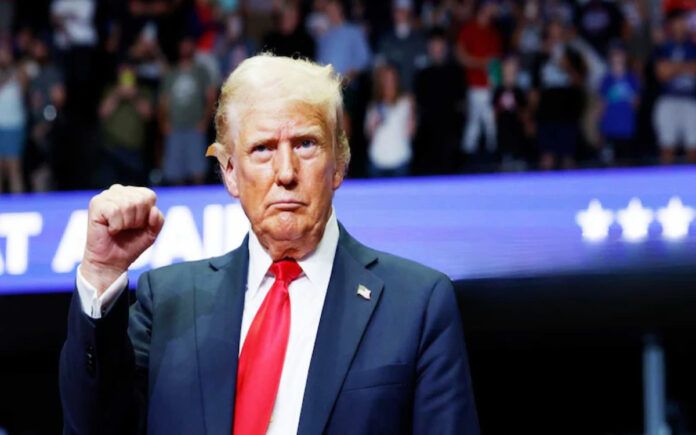Washington: President-elect Donald Trump announced plans on Tuesday to establish the External Revenue Service (ERS), a new government agency tasked with collecting tariffs, duties, and other revenues from foreign sources. Trump unveiled this initiative through a post on Truth Social, framing it as part of his strategy to implement new import tariffs as he prepares to assume office for a second term next week.
“Through soft and pathetically weak Trade agreements, the American Economy has delivered growth and prosperity to the World, while taxing ourselves. It is time for that to change,” Trump stated. “We will begin charging those that make money off of us with Trade, and they will start paying, FINALLY, their fair share.”
The announcement, scheduled for implementation on January 20, leaves key details about the agency’s structure and scope unclear. Questions remain about whether the ERS would replace existing tariff and duty collection functions currently managed by U.S. Customs and Border Protection (CBP) or the Internal Revenue Service (IRS).
A spokesperson for Trump’s transition team was unavailable for comment on how the agency would operate or whether it would align with the administration’s broader goals of reducing government bureaucracy. The proposed ERS appears to contrast with the objectives of Trump’s Department of Government Efficiency initiative, led by Elon Musk and Vivek Ramaswamy, which aims to streamline government operations and cut costs.
Tariff Revenue Proposals and Economic Implications
During his campaign, Trump frequently floated the idea of replacing income taxes with tariff revenues, though economists have expressed skepticism about the feasibility of this approach. The Tax Foundation, a conservative-leaning think tank, estimates that a universal 20% tariff on all U.S. imports could generate $4.5 trillion over a decade but would likely result in reduced net collections of $3.3 trillion due to negative economic repercussions. For comparison, the IRS collected $4.69 trillion in gross taxes in fiscal 2023 alone.
Also Read | Iranian President Denies Assassination Plot Against Donald Trump
Senator Ron Wyden, the leading Democrat on the Senate Finance Committee, criticized the proposal as a “multi-trillion-dollar tax hike” on American families and small businesses. “No amount of silly rebranding will hide the fact that Trump is planning a multi-trillion-dollar tax hike on American families and small businesses to pay for another round of tax handouts to the rich,” Wyden remarked.
Potential Trade Impact
Trump’s proposed tariffs include a 10% universal import tax, a 25% duty on imports from Canada and Mexico until stricter border controls are implemented, and a 60% tariff on Chinese goods. Trade experts warn these measures could disrupt global trade, inflate consumer costs, and provoke retaliatory tariffs against U.S. exports, further complicating international trade relations.
Also Read | Fire Crews Hold the Line as Santa Ana Winds Intensify LA Blaze
As Trump moves closer to his inauguration, analysts and lawmakers are closely monitoring how the ERS will be implemented and its potential ramifications for the U.S. economy and global trade partnerships.



